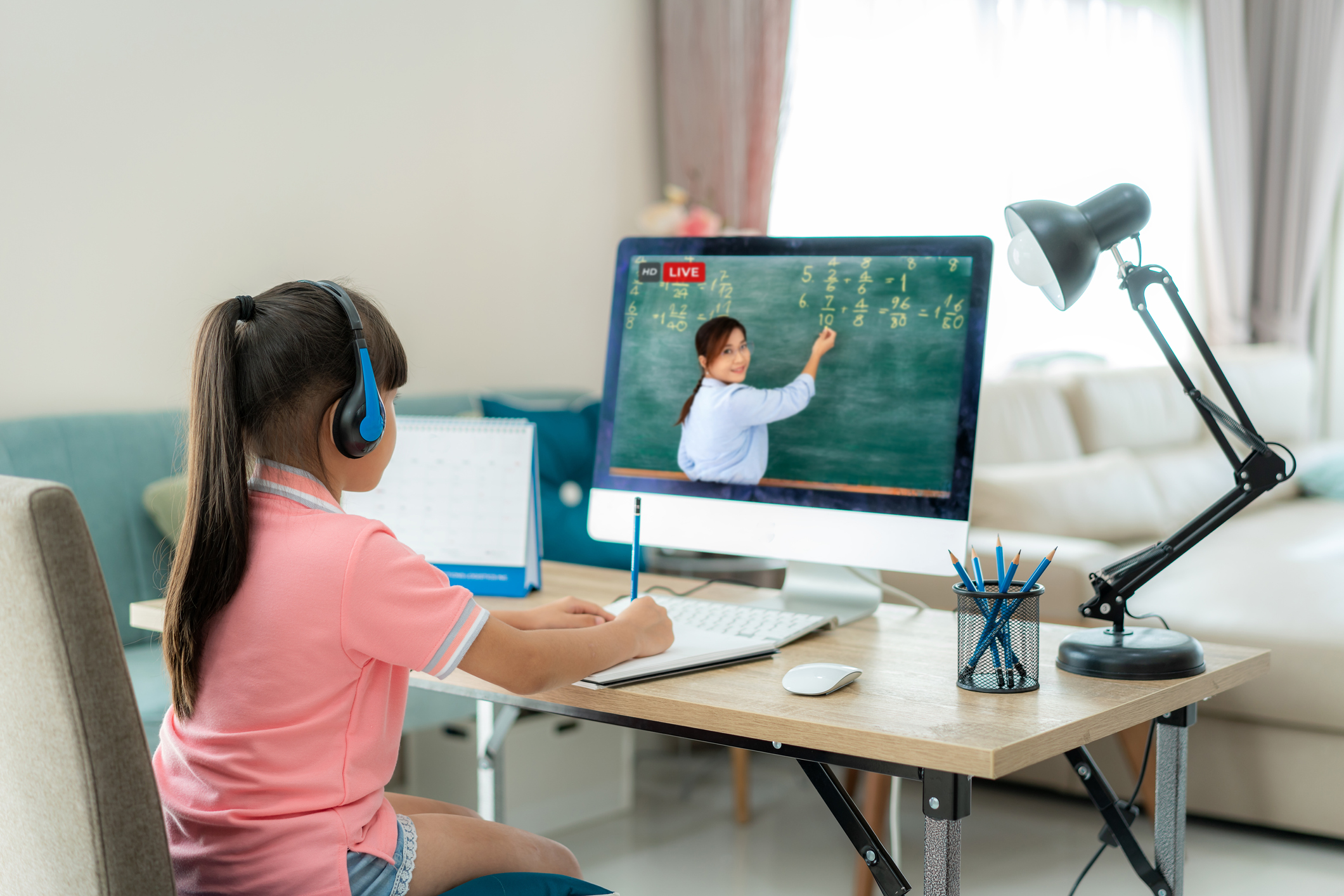7 Tips to Help your Child Focus During Virtual Learning
Many schools have transitioned to an online learning model for the school year. While this model is intended to keep children safe, it’s posing new challenges for focusing and learning as students adjust to attending lessons from home.
If your child is having a difficult time adjusting to virtual learning, they’re not alone. Tons of kids' attention spans are suffering during this transitional period. Fortunately, there are a few simple things you can do to help improve their focus and make online learning much easier for them.

- Start with a morning routine: Attending school from home has likely thrown off your child’s routine. While they may have woken up at a certain time, gotten dressed, eaten breakfast and chatted with the family before heading to school in person, now they might be waking up at unusual hours, skipping breakfast and diving right into class. Not having time to prepare for the day could hamper your child’s ability to focus later. Encourage students to maintain a morning routine that mimics one they’d follow if they were commuting to school, including a healthy breakfast and some tech-free time to prepare for class.
- Create a learning space: Children are used to focusing inside an environment built for learning and then relaxing at home. Now that home is a place for both relaxing and learning, your child will need to find ways to separate the two in order to stay focused for school. Creating a dedicated learning space can help them do this. Consider erecting a desk or dedicating a section of your kitchen table to a virtual learning setup that your child only uses for class or homework. Discourage them from learning on the couch or in bed to keep the working spaces and relaxing spaces separate.
- Reduce environmental distractions: Unfortunately, there are a ton of things in your home that can distract your child. Some of the most obvious will be technological devices, including TVs, video games and cell phones. Remove these from your child’s learning space during school hours or use apps to lock down their phone and discourage them from using it. However, other things, like pets and toys, can also distract children while they should be learning. Do your best to remove these things from your child’s learning environment and only let them access them during breaks. A pair of noise-cancelling headphones might also help them tune into their class and be less distracted by noise in the home.
- Encourage tech breaks: Too much technology can actually affect your child’s attention span over time. But even over the course of a day, spending too much time staring at a computer or tablet can wear on your child’s ability to focus. It’s important to break up your child’s day with technology-free break periods. Encourage your child to get outside and play for a few minutes, do a brief workout if they’re older or meditate. Break time might also be a good opportunity for your child to exercise their creative muscles with a craft, reading or other hobby.
- Keep healthy snacks nearby: Your child’s brain and body need the proper fuel to get them through the day energized and focused. Being at home gives your child the opportunity to refuel with healthy snacks throughout the day. After a nutritious breakfast, encourage your child to reach for foods filled with brain-healthy nutrients like B12 and omega-3 fatty acids to give their brain a boost.
- Take advantage of flexibility: If your child’s online class is pre-recorded rather than live, and they are allowed to work through it on their own time, take advantage of this flexibility. Offer your child more breaks if their concentration seems to be dipping and schedule classwork for the times of the day when they are most productive. By working with your child to optimize their energy and productivity, you can make virtual learning much more pleasant.
- Help them use a planner: Without the structure of the classroom, students might be feeling overwhelmed by all the class periods and deadlines they need to remember, and this can hamper their focus. Work with your child to find an age-appropriate schedule and planning system they can rely on to remember important times and dates. Younger children will need more instruction, but they might find a simple to-do list helpful to remember what they need to accomplish each day. Older children might benefit from a school calendar with recorded deadlines and a daily to-do list.
Virtual learning is a new experience for parents, students and teachers alike. Working together as a team will help create the most positive educational experience for your child. For your part at home, try some of these tips to help your child flourish in spite of the changes this school year.


Leave a comment